The mDOT Center
Transforming health and wellness via temporally-precise mHealth interventions






mDOT@MD2K.org
901.678.1526
901.678.1526








Collaborating Investigators:
Dr. Inbal Nahum-Shani, University of Michigan
Dr. David Wetter, University of Utah
Funding Status:
NIH/NCI
9/1/18 – 8/31/23
Associated with:
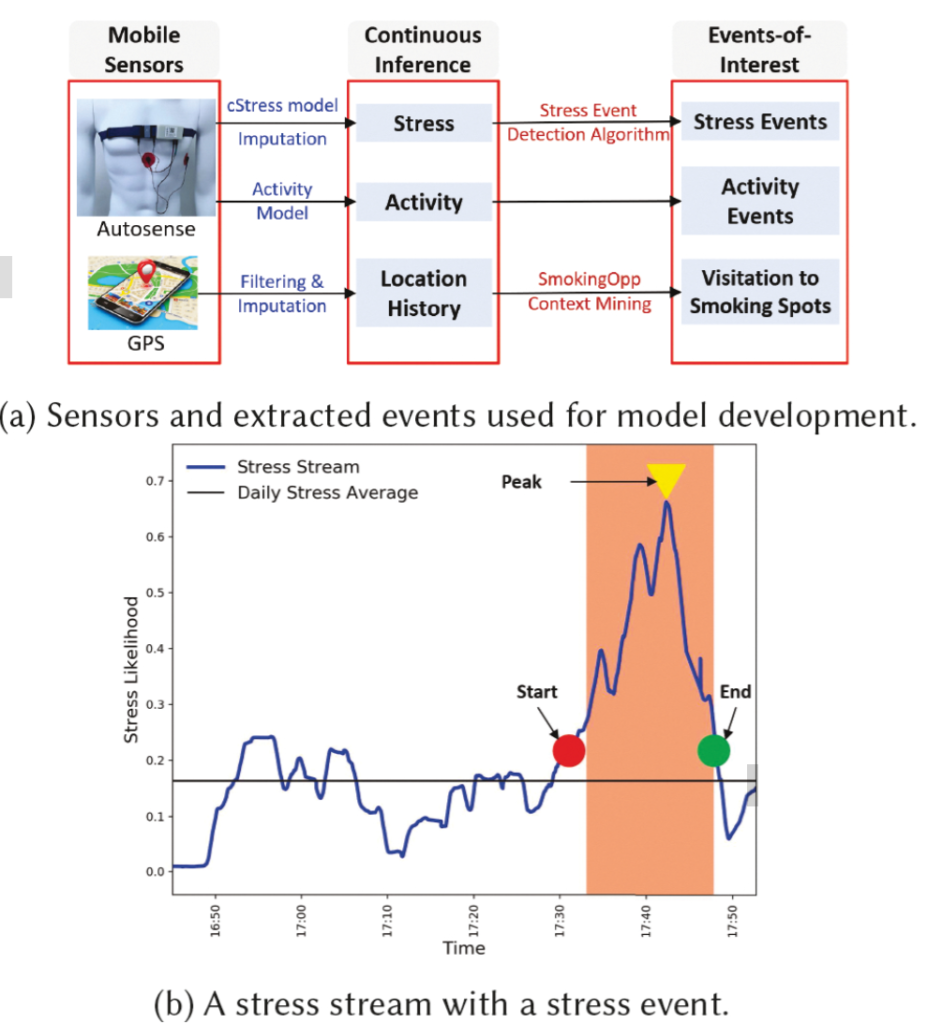
ACM on Interactive, Mobile, Wearable, and Ubiquitous Technologies (IMWUT)
September 7, 2022
behavioral intervention, human-centered computing, risk prediction, smoking cessation, ubiquitous and mobile computing design and evaluation methods, wearable sensors
Passive detection of risk factors (that may influence unhealthy or adverse behaviors) via wearable and mobile sensors has created new opportunities to improve the effectiveness of behavioral interventions. A key goal is to find opportune moments for intervention by passively detecting rising risk of an imminent adverse behavior. But, it has been difficult due to substantial noise in the data collected by sensors in the natural environment and a lack of reliable label assignment of low- and high-risk states to the continuous stream of sensor data. In this paper, we propose an event-based encoding of sensor data to reduce the effect of noises and then present an approach to efficiently model the historical influence of recent and past sensor-derived contexts on the likelihood of an adverse behavior. Next, to circumvent the lack of any confirmed negative labels (i.e., time periods with no high-risk moment), and only a few positive labels (i.e., detected adverse behavior), we propose a new loss function. We use 1,012 days of sensor and self-report data collected from 92 participants in a smoking cessation field study to train deep learning models to produce a continuous risk estimate for the likelihood of an impending smoking lapse. The risk dynamics produced by the model show that risk peaks an average of 44 minutes before a lapse. Simulations on field study data show that using our model can create intervention opportunities for 85% of lapses with 5.5 interventions per day.
We present a model for identifying ideal moments for intervention by passively detecting risk of an imminent adverse behavior.
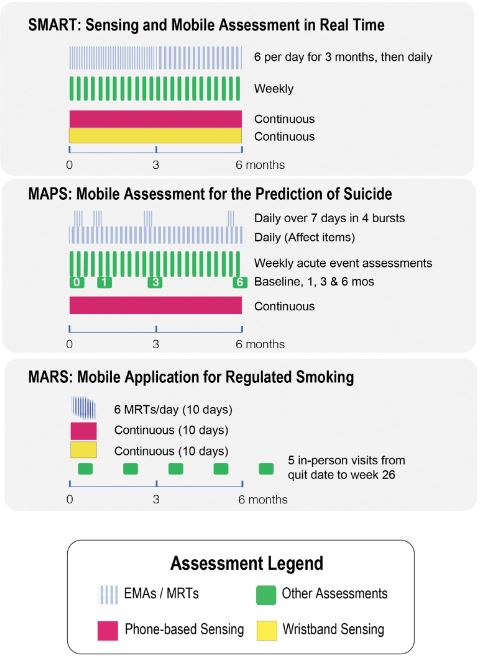
Sy-Miin Chow, Inbal Nahum-Shani, Justin Baker, Donna Spruijt-Metz, Nicholas Allen, Randy Auerbach, Genevieve Dunton, Naomi Friedman, Stephen Intille, Predrag Klasnja, Benjamin Marlin, Matthew Nock, Scott Rauch, Misha Pavel, Scott Vrieze, David Wetter, Evan Kleiman, Timothy Brick, Heather Perry, Dana Wolff-Hughes
Translational Behavioral Medicine, Volume 13, Issue 1, January 2023, Pages 7–16
November 23, 2022
EMA, health behavior changes, ILHBN, location, sensor
The ILHBN is funded by the National Institutes of Health to collaboratively study the interactive dynamics of behavior, health, and the environment using Intensive Longitudinal Data (ILD) to (a) understand and intervene on behavior and health and (b) develop new analytic methods to innovate behavioral theories and interventions. The heterogenous study designs, populations, and measurement protocols adopted by the seven studies within the ILHBN created practical challenges, but also unprecedented opportunities to capitalize on data harmonization to provide comparable views of data from different studies, enhance the quality and utility of expensive and hard-won ILD, and amplify scientific yield. The purpose of this article is to provide a brief report of the challenges, opportunities, and solutions from some of the ILHBN’s cross-study data harmonization efforts. We review the process through which harmonization challenges and opportunities motivated the development of tools and collection of metadata within the ILHBN. A variety of strategies have been adopted within the ILHBN to facilitate harmonization of ecological momentary assessment, location, accelerometer, and participant engagement data while preserving theory-driven heterogeneity and data privacy considerations. Several tools have been developed by the ILHBN to resolve challenges in integrating ILD across multiple data streams and time scales both within and across studies. Harmonization of distinct longitudinal measures, measurement tools, and sampling rates across studies is challenging, but also opens up new opportunities to address cross-cutting scientific themes of interest.
The article shares insights, challenges, opportunities, and solutions from harmonizing intensive longitudinal data within the ILHBN, providing tools and recommendations for future data harmonization efforts.
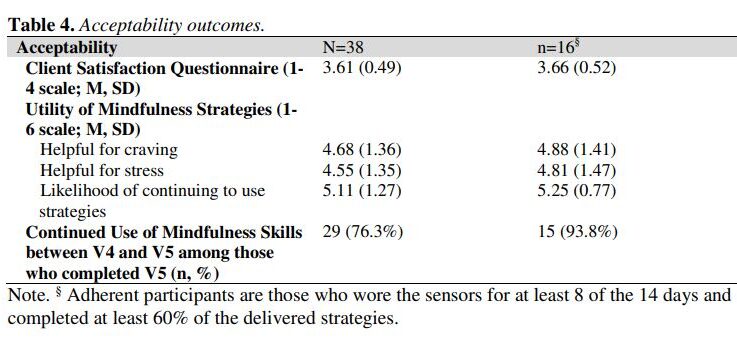
Addictive Behaviors, Volume 136, p.107467
January 2023
just-in-time adaptive intervention, micro-randomized trial, mindfulness; smoking cessation; mHealth
Smoking cessation treatments that are easily accessible and deliver intervention content at vulnerable moments (e.g., high negative affect) have great potential to impact tobacco abstinence. The current study examined the feasibility and acceptability of a multi-component Just-In-Time Adaptive Intervention (JITAI) for smoking cessation. Daily smokers interested in quitting were consented to participate in a 6-week cessation study. Visit 1 occurred 4 days pre-quit, Visit 2 was on the quit day, Visit 3 occurred 3 days post-quit, Visit 4 was 10 days post-quit, and Visit 5 was 28 days post-quit. During the first 2 weeks (Visits 1-4), the JITAI delivered brief mindfulness/motivational strategies via smartphone in real-time based on negative affect or smoking behavior detected by wearable sensors. Participants also attended 5 in-person visits, where brief cessation counseling (Visits 1-4) and nicotine replacement therapy (Visits 2-5) were provided. Outcomes were feasibility and acceptability; biochemically-confirmed abstinence was also measured. Participants (N = 43) were 58.1 % female (AgeMean = 49.1, mean cigarettes per day = 15.4). Retention through follow-up was high (83.7 %). For participants with available data (n = 38), 24 (63 %) met the benchmark for sensor wearing, among whom 16 (67 %) completed at least 60 % of strategies. Perceived ease of wearing sensors (Mean = 5.1 out of 6) and treatment satisfaction (Mean = 3.6 out of 4) were high. Biochemically-confirmed abstinence was 34 % at Visit 4 and 21 % at Visit 5. Overall, the feasibility of this novel multi-component intervention for smoking cessation was mixed but acceptability was high. Future studies with improved technology will decrease participant burden and better detect key intervention moments.
The study assessed the feasibility and acceptability of a multi-component Just-In-Time Adaptive Intervention (JITAI) for smoking cessation, utilizing smartphone-delivered mindfulness/motivational strategies based on real-time negative affect or smoking behavior detected by wearable sensors. Participants showed high retention (83.7%) and reported high satisfaction with the intervention, but the feasibility was mixed.
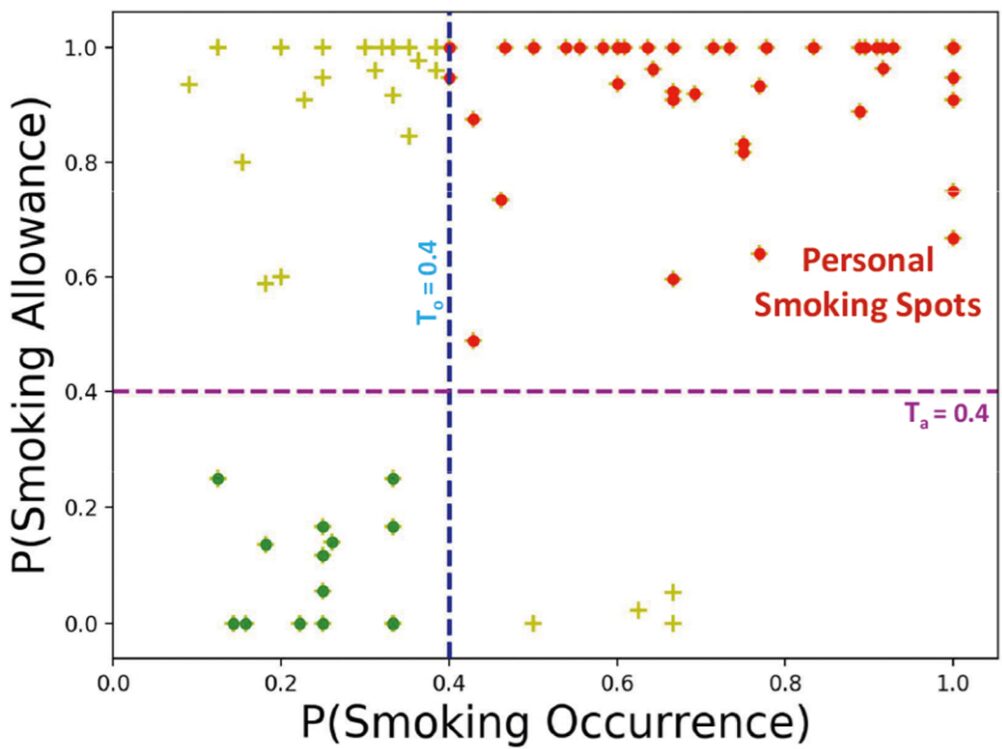
Proceedings of the ACM on Interactive, Mobile, Wearable and Ubiquitous Technologies
mobile health, context, smoking cessation, intervention, GPS traces
March 2020
Context plays a key role in impulsive adverse behaviors such as fights, suicide attempts, binge-drinking, and smoking lapse. Several contexts dissuade such behaviors, but some may trigger adverse impulsive behaviors. We define these latter contexts as ‘opportunity’ contexts, as their passive detection from sensors can be used to deliver context-sensitive interventions. In this paper, we define the general concept of ‘opportunity’ contexts and apply it to the case of smoking cessation. We operationalize the smoking ‘opportunity’ context, using self-reported smoking allowance and cigarette availability. We show its clinical utility by establishing its association with smoking occurrences using Granger causality. Next, we mine several informative features from GPS traces, including the novel location context of smoking spots, to develop the SmokingOpp model for automatically detecting the smoking ‘opportunity’ context. Finally, we train and evaluate the SmokingOpp model using 15 million GPS points and 3,432 self-reports from 90 newly abstinent smokers in a smoking cessation study.
In this paper, we define the general concept of ‘opportunity’ contexts and apply it to the case of smoking cessation. We mine several informative features from GPS traces, including the novel location context of smoking spots, to develop the SmokingOpp model for automatically detecting the smoking ‘opportunity’ context.
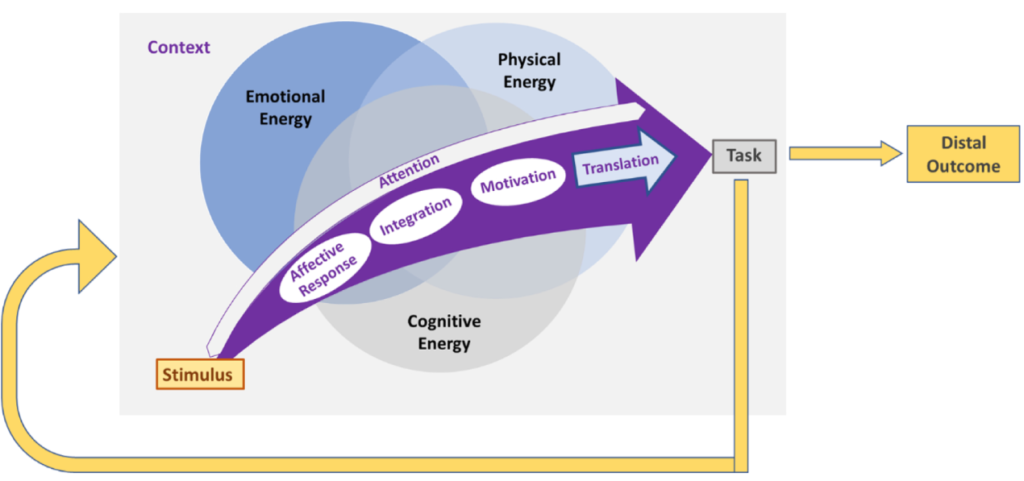
American Psychologist
March 17, 2022
engagement, digital interventions, affect, motivation, attention
The notion of “engagement,” which plays an important role in various domains of psychology, is gaining increased currency as a concept that is critical to the success of digital interventions. However, engagement remains an ill-defined construct, with different fields generating their own domain-specific definitions. Moreover, given that digital interactions in real-world settings are characterized by multiple demands and choice alternatives competing for an individual’s effort and attention, they involve fast and often impulsive decision making. Prior research seeking to uncover the mechanisms underlying engagement has nonetheless focused mainly on psychological factors and social influences and neglected to account for the role of neural mechanisms that shape individual choices. This paper aims to integrate theories and empirical evidence across multiple domains to define engagement and discuss opportunities and challenges to promoting effective engagement in digital interventions. We also propose the AIM-ACT framework, which is based on a neurophysiological account of engagement, to shed new light on how in-the-moment engagement unfolds in response to a digital stimulus. Building on this framework, we provide recommendations for designing strategies to promote engagement in digital interventions and highlight directions for future research.
This paper focuses on defining and understanding engagement in digital interventions by combining various theories and evidence from different domains. It introduces the AIM-ACT framework, which explains how engagement happens in response to digital stimuli based on neurophysiological principles and offers suggestions for designing effective engagement strategies in digital interventions.
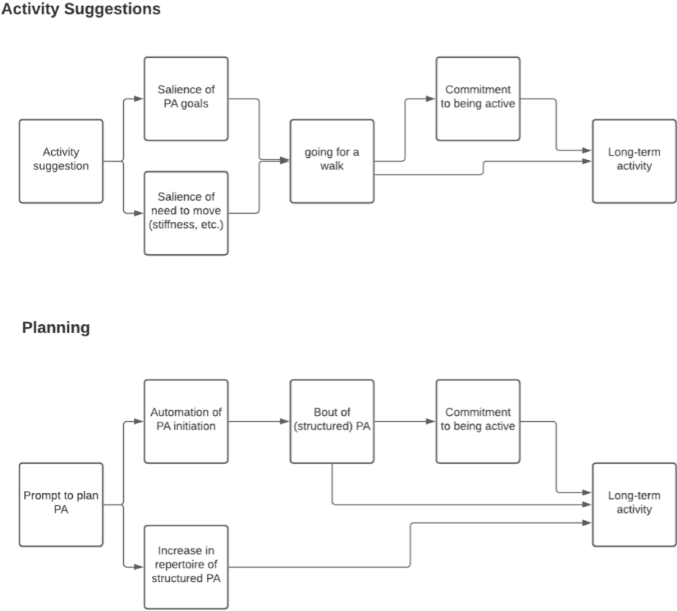
Psychological Methods
January 13, 2022
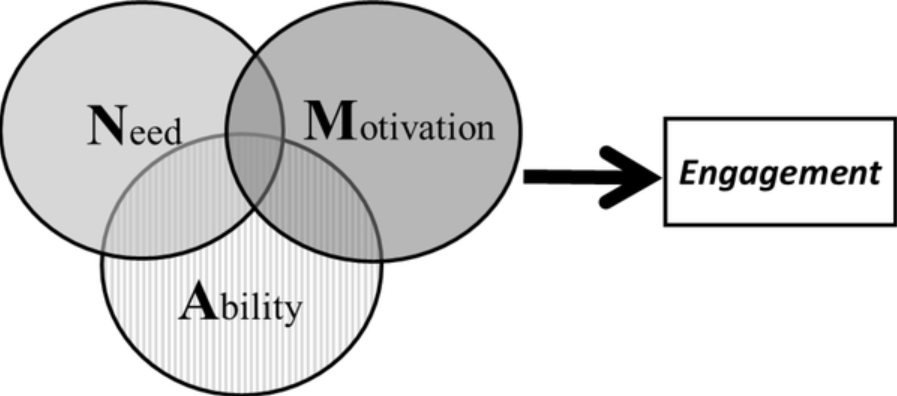
December 2021
engagement, mobile health (mHealth), Micro-Randomized Trial (MRT), reciprocity, reinforcement
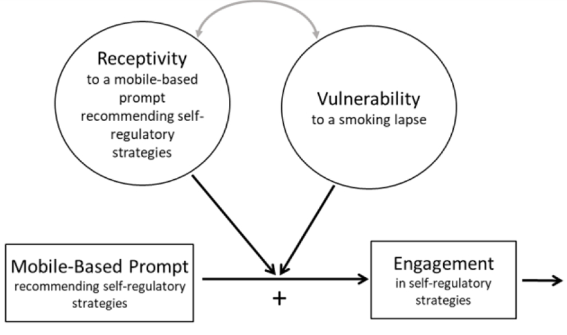
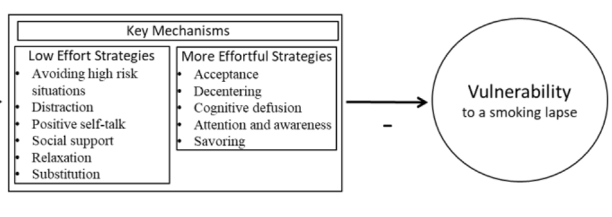
Contemporary Clinical Trials
engagement, Micro-randomized trial (MRT), mobile health (mHealth), self-regulatory strategies, smoking cessation
November 2021
Smoking is the leading preventable cause of death and disability in the U.S. Empirical evidence suggests that engaging in evidence-based self-regulatory strategies (e.g., behavioral substitution, mindful attention) can improve smokers’ ability to resist craving and build self-regulatory skills. However, poor engagement represents a major barrier to maximizing the impact of self-regulatory strategies. This paper describes the protocol for Mobile Assistance for Regulating Smoking (MARS) – a research study designed to inform the development of a mobile health (mHealth) intervention for promoting real-time, real-world engagement in evidence-based self-regulatory strategies. The study will employ a 10-day Micro-Randomized Trial (MRT) enrolling 112 smokers attempting to quit. Utilizing a mobile smoking cessation app, the MRT will randomize each individual multiple times per day to either: (a) no intervention prompt; (b) a prompt recommending brief (low effort) cognitive and/or behavioral self-regulatory strategies; or (c) a prompt recommending more effortful cognitive or mindfulness-based strategies. Prompts will be delivered via push notifications from the MARS mobile app. The goal is to investigate whether, what type of, and under what conditions prompting the individual to engage in self-regulatory strategies increases engagement. The results will build the empirical foundation necessary to develop a mHealth intervention that effectively utilizes intensive longitudinal self-report and sensor-based assessments of emotions, context and other factors to engage an individual in the type of self-regulatory activity that would be most beneficial given their real-time, real-world circumstances. This type of mHealth intervention holds enormous potential to expand the reach and impact of smoking cessation treatments.
This paper describes the protocol for Mobile Assistance for Regulating Smoking (MARS) – a research study designed to inform the development of a mobile health (mHealth) intervention for promoting real-time, real-world engagement in evidence-based self-regulatory strategies.

Current Addiction Reports
addiction, just-in-time adaptive intervention, micro-randomized trial, mobile health
September 2020
Addiction is a serious and prevalent problem across the globe. An important challenge facing intervention science is how to support addiction treatment and recovery while mitigating the associated cost and stigma. A promising solution is the use of mobile health (mHealth) just-in-time adaptive interventions (JITAIs), in which intervention options are delivered in situ via a mobile device when individuals are most in need.
The present review describes the use of mHealth JITAIs to support addiction treatment and recovery, and provides guidance on when and how the micro-randomized trial (MRT) can be used to optimize a JITAI. We describe the design of five mHealth JITAIs in addiction and three MRT studies, and discuss challenges and future directions.
This review aims to provide guidance for constructing effective JITAIs to support addiction treatment and recovery.

Digital Therapeutics for Mental Health and Addiction (pp.77-87)
just-in-time adaptive interventions, mental health, addiction
January 2023
Advances in mobile and sensing technologies offer many opportunities for delivering just-in-time adaptive interventions (JITAIs)—interventions that use dynamically changing information about the individual’s internal state and context to recommend whether and how to deliver interventions in real-time, in daily life. States of vulnerability to an adverse outcome and states of receptivity to a just-in-time intervention play a critical role in the formulation of effective JITAIs. However, these states are defined, operationalized, and studied in various ways across different fields and research projects. This chapter is intended to (a) clarify the definition and operationalization of vulnerability to adverse outcomes and receptivity to just-in-time interventions; and (b) provide greater specificity in formulating scientific questions about these states. This greater precision has the potential to aid researchers in selecting the most suitable study design for answering questions about states of vulnerability and receptivity to inform JITAIs.
States of vulnerability to an adverse outcome and states of receptivity to a just-in-time intervention play a critical role in the formulation of effective JITAIs. This chapter is intended to clarify the definition and operationalization of vulnerability to adverse outcomes and receptivity to just-in-time interventions; and provide greater specificity in formulating scientific questions about these states.
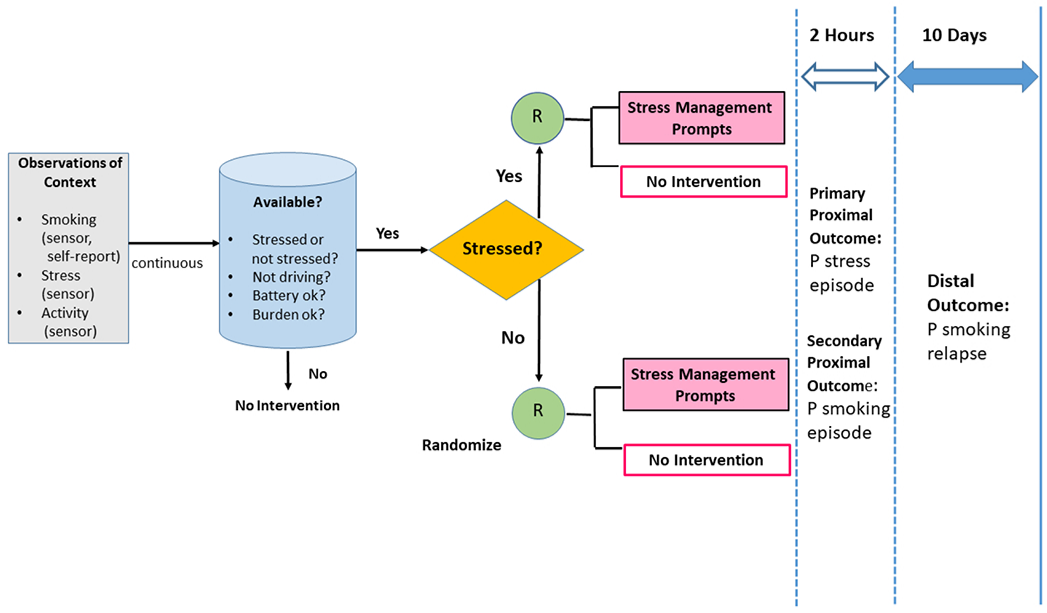
Contemporary Clinical Trials
digital intervention, just-in-time adaptive intervention, micro-randomized trial, optimization, smoking, stress, mHealth
August 8, 2021
Background: Relapse to smoking is commonly triggered by stress, but behavioral interventions have shown only modest efficacy in preventing stress-related relapse. Continuous digital sensing to detect states of smoking risk and intervention receptivity may make it feasible to increase treatment efficacy by adapting intervention timing.
Objective: Aims are to investigate whether the delivery of a prompt to perform stress management behavior, as compared to no prompt, reduces the likelihood of (a) being stressed and (b) smoking in the subsequent two hours, and (c) whether current stress moderates these effects.
Study Design: A micro-randomized trial will be implemented with 75 adult smokers who wear Autosense chest and wrist sensors and use the mCerebrum suite of smartphone apps to report and respond to ecological momentary assessment (EMA) questions about smoking and mood for 4 days before and 10 days after a quit attempt and to access a set of stress-management apps. Sensor data will be processed on the smartphone in real time using the cStress algorithm to classify minutes as probably stressed or probably not stressed. Stressed and non-stressed minutes will be micro-randomized to deliver either a prompt to perform a stress management exercise via one of the apps or no prompt (2.5-3 stress management prompts will be delivered daily). Sensor and self-report assessments of stress and smoking will be analyzed to optimize decision rules for a just-in-time adaptive intervention (JITAI) to prevent smoking relapse.
Significance: Sense2Stop will be the first digital trial using wearable sensors and micro-randomization to optimize a just-in-time adaptive stress management intervention for smoking relapse prevention.
Sense2Stop will be the first digital trial using wearable sensors and micro-randomization to optimize a just-in-time adaptive stress management intervention for smoking relapse prevention.
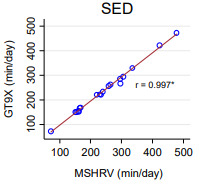
Sensors (Basel)
MotionSense HRV, accelerometer, mobile health, physical activity, sedentary behavior
February 18, 2021
MotionSense HRV is a wrist-worn accelerometery-based sensor that is paired with a smartphone and is thus capable of measuring the intensity, duration, and frequency of physical activity (PA). However, little information is available on the validity of the MotionSense HRV. Therefore, the purpose of this study was to assess the concurrent validity of the MotionSense HRV in estimating sedentary behavior (SED) and PA. A total of 20 healthy adults (age: 32.5 ± 15.1 years) wore the MotionSense HRV and ActiGraph GT9X accelerometer (GT9X) on their non-dominant wrist for seven consecutive days during free-living conditions. Raw acceleration data from the devices were summarized into average time (min/day) spent in SED and moderate-to-vigorous PA (MVPA). Additionally, using the Cosemed K5 indirect calorimetry system (K5) as a criterion measure, the validity of the MotionSense HRV was examined in simulated free-living conditions. Pearson correlations, mean absolute percent errors (MAPE), Bland-Altman (BA) plots, and equivalence tests were used to examine the validity of the MotionSense HRV against criterion measures. The correlations between the MotionSense HRV and GT9X were high and the MAPE were low for both the SED (r = 0.99, MAPE = 2.4%) and MVPA (r = 0.97, MAPE = 9.1%) estimates under free-living conditions. BA plots illustrated that there was no systematic bias between the MotionSense HRV and criterion measures. The estimates of SED and MVPA from the MotionSense HRV were significantly equivalent to those from the GT9X; the equivalence zones were set at 16.5% for SED and 29% for MVPA. The estimates of SED and PA from the MotionSense HRV were less comparable when compared with those from the K5. The MotionSense HRV yielded comparable estimates for SED and PA when compared with the GT9X accelerometer under free-living conditions. We confirmed the promising application of the MotionSense HRV for monitoring PA patterns for practical and research purposes.
The purpose of this study was to assess the concurrent validity of the MotionSense HRV in estimating sedentary behavior (SED) and PA.
You must be logged in to post a comment.

No Comments